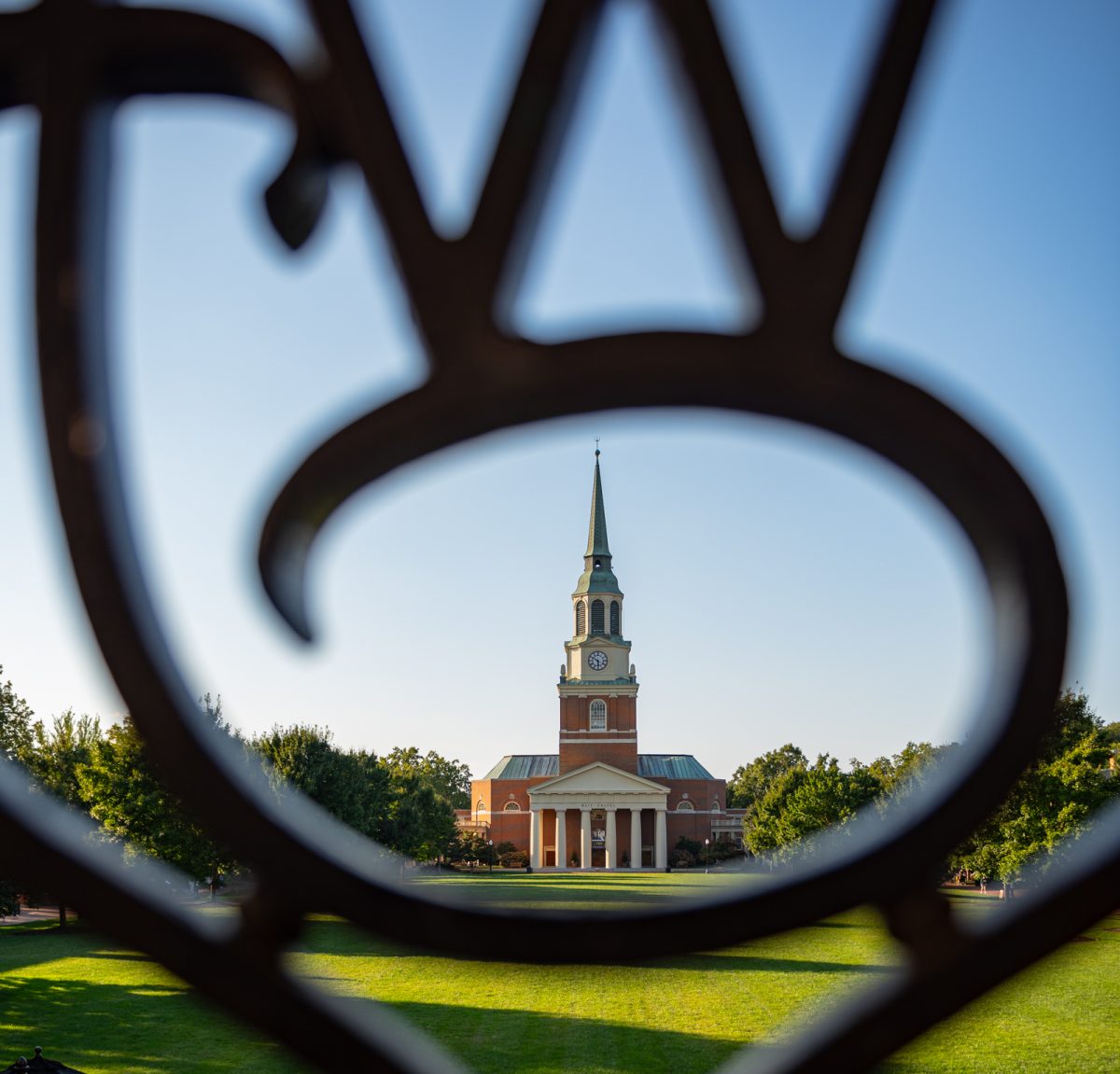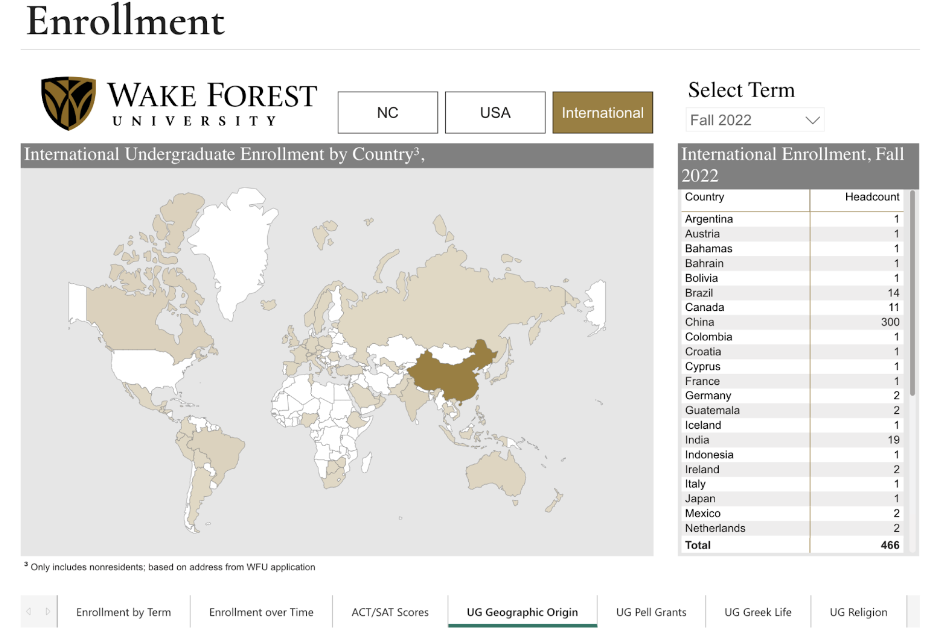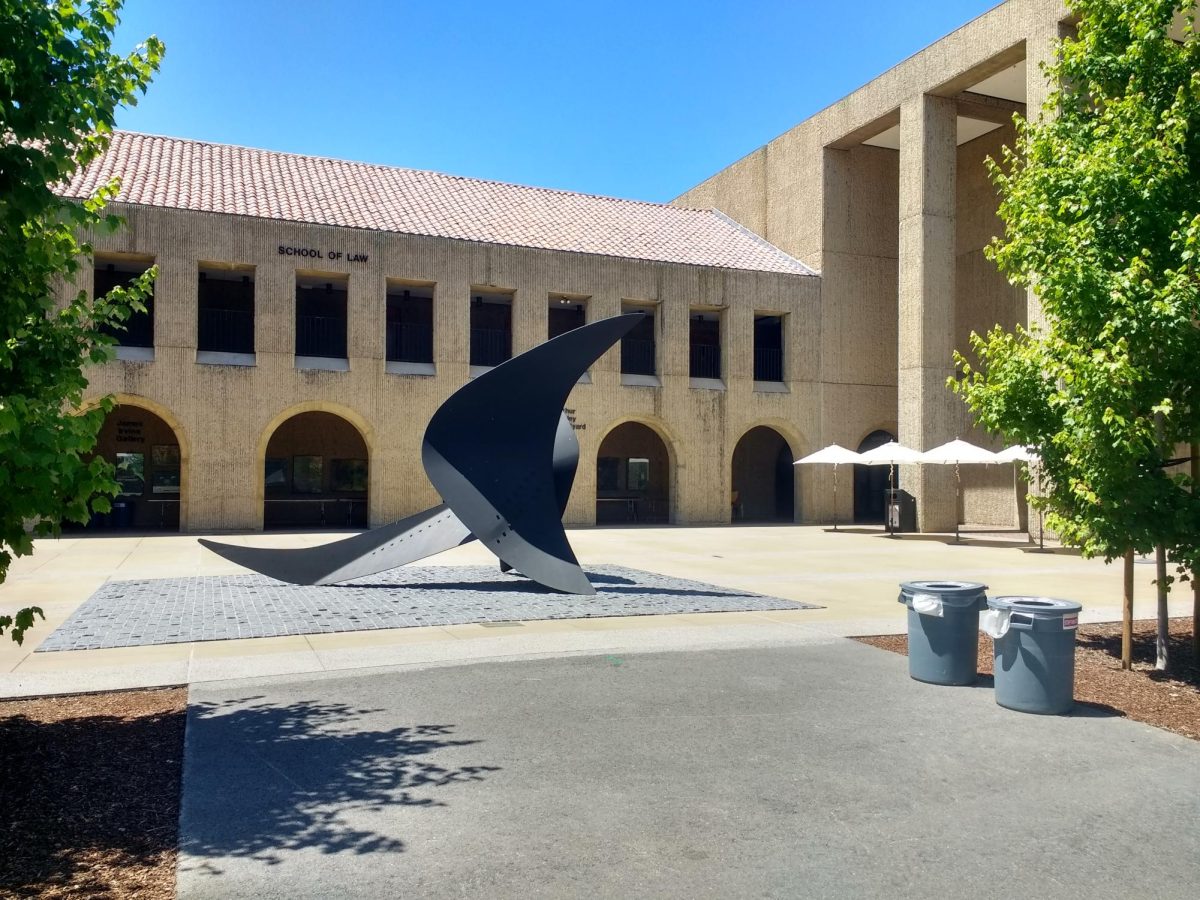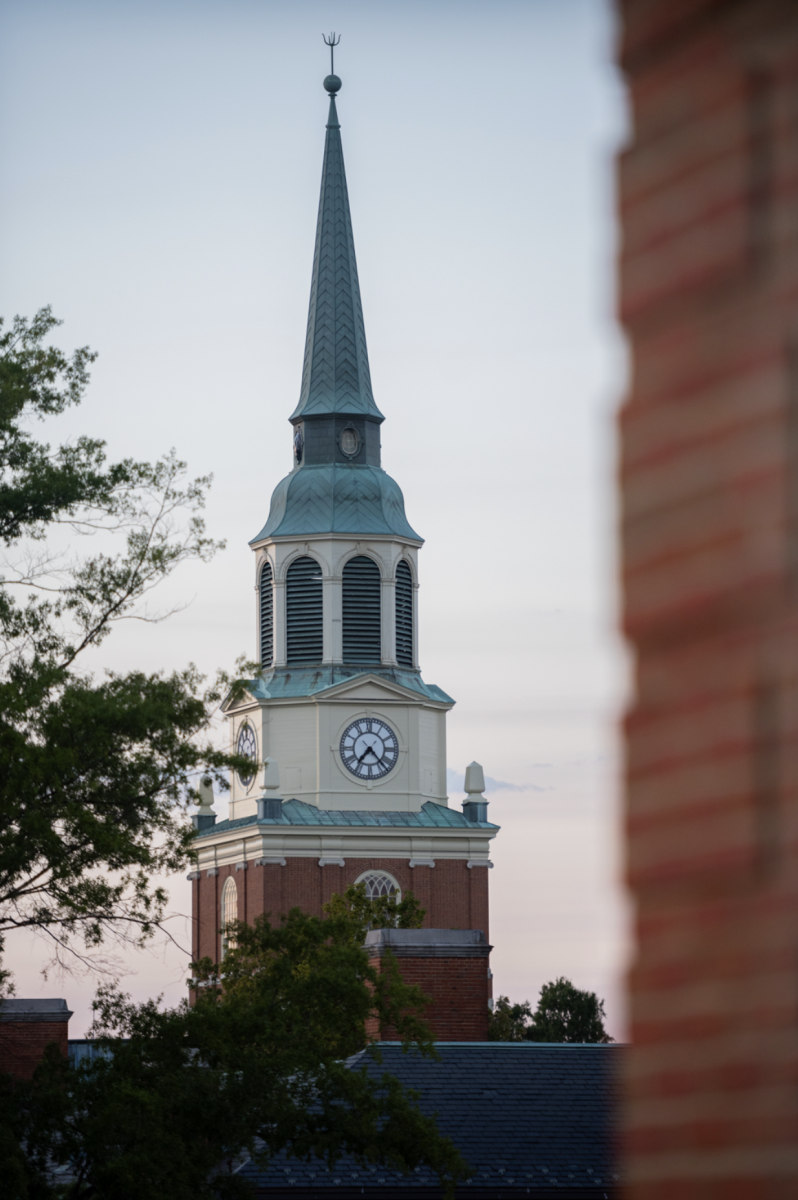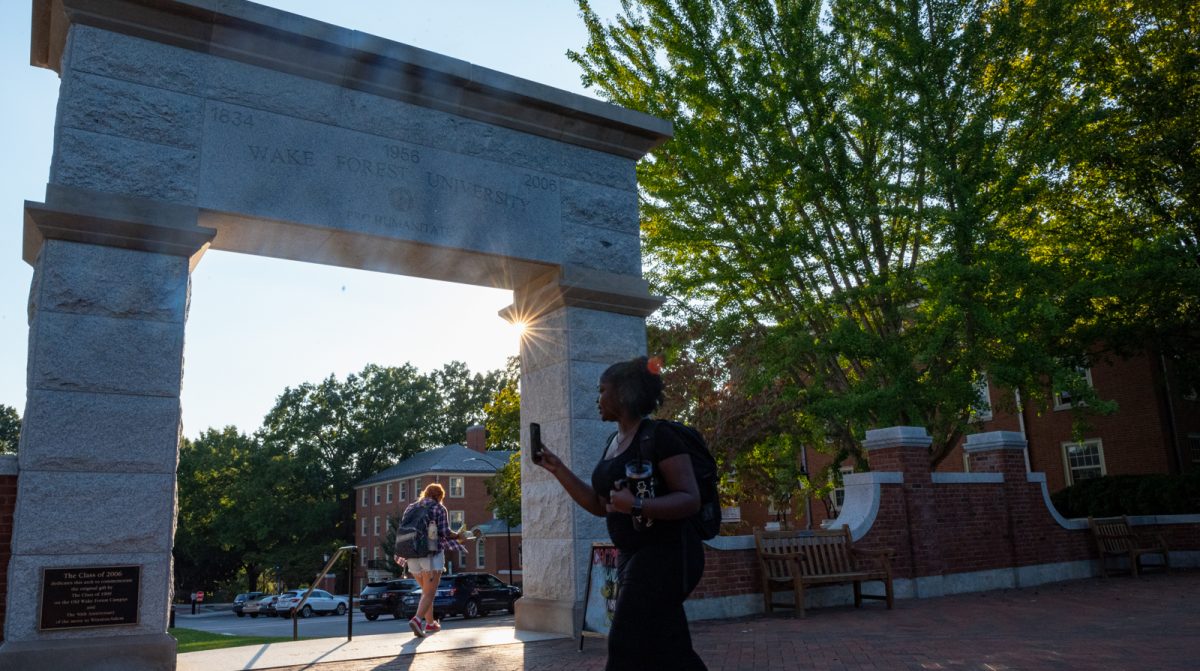Wake Forest’s significant drop in the U.S. News rankings has dominated conversation this week, both on campus and social media. University leaders assure students with concerns that the lower ranking is unlikely to impact their marketability.
After the rankings were announced, students were quick to voice their frustrations on the anonymous social media app Fizz.
“I’m f*cking transferring, I’m not paying 84k a year for a school ranked #47” read one post with 1,600 upvotes.
“It’s funny for wake forest to say rankings don’t matter when they foster an environment that makes students care about rankings and numbers,” read another post with 1,100 upvotes.
Other individuals expressed concern that the university’s drop in ranking could negatively shade the value of their Wake Forest education.
“I feel like it retroactively diminishes the value of my degree,” alumna Emma Galante (‘22) told the Old Gold & Black.
Despite these concerns, some students and faculty remain unalarmed by this change — expressing that rankings don’t define Wake Forest; rather, it’s the community and learning environment that attracts students here.
“We will remain steadfast in our stated commitments, goals, and vision for the University – and continue striving to provide the best possible educational opportunities,” said President Susan Wente and Provost Michele Gillespie in a campus-wide email.
Some students also believe that this ranking won’t affect Wake Forest’s reputation.
“I’m a bit disappointed, but it just goes to prove that the numbers are just that, numbers,” freshman Esther Desroche told the Old Gold & Black.
“I know Wake Forest was the right school for me, and I didn’t make the choice to come here based on where Wake stood in a ranking,” said senior Megan Tibe. “There’s so much that this school offers that is important to me, whether that’s closer access to my professors with the small student-to-faculty ratio, or the campus and the location. I know I’ve gotten a high-quality education here.”
Andy Chan, vice president of innovation and career development, explained how the U.S. News & World Report ranking may not consider certain aspects of the university that are most valued by students and employers.
“We think of college as being all about having an experience of personal environment, knowing your teachers, being able to have small class sizes — a place where mentoring really matters,” Chan said. “I think that the U.S. News & World Report metrics aren’t measuring any of those things. They seem to be measuring things that are about the size of endowments, size of their graduate programs, amount of research being done, and things like that.”
This year, U.S. News restructured the ranking system so that it no longer considers factors including small class sizes and instruction by professors with a terminal degree. The new ranking system also added seven new indicators — four related to faculty research, two related to first-generation graduation rates and one related to graduate income.
Chan also addressed how much value employers may put in this ranking, and if they’ll prioritize it during the hiring process, noting that many employers prioritize experience and knowledge over the prestige of a university.
“It’s clear what employers are looking for is skills and experiences,” Chan said. “The better you’re able to describe the skills that you’ve gained whether it be through classwork, or through extracurricular work, or through clubs and other types of things, even certificate programs, that’s what they want to see.”
In fact, employers may place even less emphasis on rankings than students may think, according to Chan.
“When deciding to recruit talent from colleges and universities, recruiters prioritize several factors, but media rankings are not one of them,” Chan said. “In a Gallup-Strada survey, about 9 out of 10 employers said they do not focus on college rankings when making hiring decisions. Employers are much more interested in a university’s past success in producing talented graduates who are able to excel in their careers.”
Tibe thinks that her Wake Forest education would mean more to employers and graduate schools than a ranking would.
“I should hope that anywhere I would be applying to grad school would understand that just because this ranking changed, it didn’t change the school, its alumni and everyone that works at it overnight,” Tibe said. “So nothing about Wake Forest has actually changed.”
Chan also pointed out that rankings don’t matter as much to employers because they prioritize their own criteria instead.
“I think that what happens is that employers themselves and graduate schools don’t really look at [the U.S. News & World Report ranking] because they use their own criteria to measure the quality of the candidates, not based on what some media outlet is telling you is good or not,” Chan said.
Despite the drop in ranking, Tibe stated that Wake Forest remains an academically strong school.
“I don’t think anybody can take away from the academic caliber of Wake Forest,” she said.
Update Sept. 20 at 9:26 p.m.: This article was changed to update an outdated subhead.



